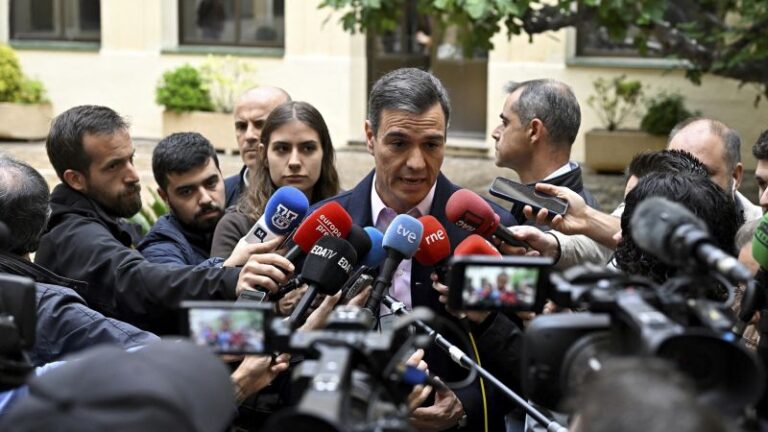Madrid
CNN
—
Spanish Prime Minister Pedro Sanchez has announced snap parliamentary elections in July, hours after his ruling Socialists suffered major setbacks in regional and local elections.
In a nationally televised statement, Sanchez said he had informed Spain’s King Felipe VI, the head of state, to hold parliamentary elections on July 23, and that an extraordinary cabinet meeting would be held later Monday to approve the decision.
“I took this decision in light of the results of yesterday’s elections,” said Sanchez.
The conservative Popular Party made huge gains in Sunday’s elections, defeating incumbent Socialists in numerous key regional and city governments, including in the Valencia regional government in the east of the country and Seville city hall in the south.
Popular Party leader Alberto Nunez Feijoo welcomed the move.
“Our country has embarked on a journey of renewal that has now proven to be unstoppable,” he tweeted, calling on supporters to deliver “an uncontested majority” in July’s elections.
“Spain is ready for change,” added Feijoo.
Sanchez, 51, became prime minister in 2018 after winning a vote of no confidence in parliament against then-conservative Prime Minister Mariano Rajoy.
Sanchez then won a general election in November 2019, but fell short of a majority. He formed a coalition government with the leftist Podemos party, which also suffered setbacks in Sunday’s local elections.
Sanchez’s government has been a staunch ally of Ukraine, sending tanks, air defense systems and other aid to Kyiv following Russia’s invasion. Domestically he has pushed a progressive agenda, including policies on women’s rights and a euthanasia law.
The prime minister is making “a complex chess move,” Andres Villena, a professor at Madrid’s Complutense University, told CNN.
“Sanchez’s decision to move up the elections could neutralize the honeymoon for the incoming conservative leaders” in the local elections, Villena said.
Villena said the snap elections also add pressure on the untested national candidate Feijoo, who became leader of the Popular Party only last year.
His party won Sunday’s vote but fell just short of majorities in various regional and local governments and the snap poll in July might also dissuade Feijoo from allowing those conservative winners to make local governing deals with the far-right Vox party, which also scored gains.
The announcement, Villena added, also puts pressure on the leftist Podemos party, the junior member of Sanchez’s governing coalition, to make election campaigning deals with another leftist party, Sumar, which could boost chances for the progressives to win seats in July.



